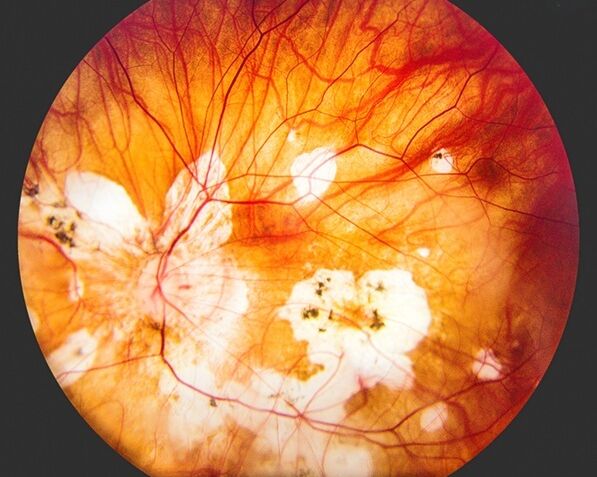Genomics England receives funding for cutting-edge genomics research to help boost diagnosis and treatment for patients
- £105 million to speed up diagnosis of rare genetic conditions in newborns, potentially resulting in life-saving interventions for thousands of babies
- Additional funding to kickstart programmes to help improve the accuracy and speed of cancer diagnosis and tackle health inequalities
- Part of new three-year plan to roll out new technologies across the health and care system, bolstering the UK’s position as a life sciences superpower
Patients with cancer and children born with treatable rare genetic conditions are set to benefit from earlier diagnosis and faster access to treatment, following a £175 million boost to cutting-edge genomics research announced by the Health and Social Care Secretary today (Tuesday 13 December).
The funding will support three ground-breaking initiatives led by Genomics England and enable research to advance the delivery of world-leading genomic healthcare to patients. The boost is part of a new three-year plan to develop, evaluate and roll out new technologies across the health and care system and life sciences sector, bolstering the UK’s position as a life sciences superpower. This includes:
- £105 million to kickstart a world-leading research study, led by Genomics England in partnership with the NHS, to look at the effectiveness of using whole genome sequencing to find and treat rare genetic conditions in newborn babies. Beginning in 2023, the Newborn Genomes Programme will sequence the genomes of up to 100,000 babies shortly after they are born to consider whether whole genome sequencing could be rolled out across the country.
- An initial £26 million to support an innovative cancer programme, led by Genomics England in partnership with the NHS, to evaluate cutting-edge genomic sequencing technology to improve the accuracy and speed of diagnosis for cancer patients and use artificial intelligence to analyse a person’s DNA, alongside other information such as routine scans to drive novel research discoveries.
- £22 million towards a programme, led by Genomics England, to sequence the genomes of up to 25,000 research participants of non-European ancestry, who are currently under-represented in genomic research to improve our understanding of DNA and its impact on health outcomes. This will help reduce health inequalities and level up patient outcomes across all communities.
These announcements will build on the world-leading work of the NHS Genomic Medicine Service.
Thousands of children are born in the UK every year with a treatable rare condition that could be detected using genome sequencing. Most rare conditions are genetic and children under the age of five are disproportionately affected. Whilst these conditions are often difficult to identify, genomic testing has already become the main way of providing a diagnosis.
The current NHS heel prick blood test carried out as part of newborn screening is used to detect nine rare and serious health conditions in babies, including sickle cell disease and cystic fibrosis. However, screening a baby’s entire genome – all of their DNA – alongside the current heel prick could detect hundreds more rare, treatable conditions in their first years of life. For many of these illnesses early and effective intervention is crucial for helping these children live healthier lives.
The Newborn Genomes Programme will also support vital healthcare research to enable better diagnostics and treatments to be developed and explore the value of securely storing a patient’s genome to help predict, diagnose and treat future illnesses through their lifetime. As part of this work, Genomics England will explore and respond to public attitudes through ongoing engagement and ethics.
A public consultation by Genomics England has shown overall support for the use of genomics in newborn screening, providing the right safeguards are in place. Genomics England engaged widely with the public, parents, families with rare conditions, and healthcare professionals and scientists to navigate the scientific, clinical, ethical, and societal issues that newborn genome sequencing presents.
Alongside this, as part of their innovative Cancer 2.0 programme, Genomics England will partner with NHSE England (NHSE) to test new genomic sequencing technology for faster, more accurate cancer diagnosis. Working with NHSE and the National Pathology Imaging Co-operative (NPIC), Genomics England will also combine imaging, genomic, and clinical data to better diagnose and predict the progress of a patient’s cancer.
To overcome the lack of diversity within genomic data, Genomics England’s Diverse Data initiative aims to build trusting relationships with traditionally excluded groups of people alongside developing tools to enable doctors and researchers to better interpret genetic variations and make more informed decisions about patient care. This will help tackle health inequalities and improve patient outcomes within genomic medicine.
As set out in the government’s genomic healthcare strategy, Genome UK, the ambition is to create the most advanced genomic healthcare system in the world. This will be underpinned by the latest scientific advances and engagement with patients and the public, developing the genomics workforce and supporting industrial growth.
This continued investment in genomics means that the country is well placed to remain at the forefront and for us to be able to offer the best clinical care for patients.
Our goal in the Newborn Genomes Programme is to do more for the thousands of children born every year in the UK with a treatable genetic condition. We want to be able to offer speedy diagnosis, quicker access to treatment, and better outcomes and quality of life. We want to be able to say to parents that we’ve done the best we can to identify and do something about these life-changing illnesses, in a timely way before the damage these conditions can cause has been done. Generating this evidence will allow policymakers to make well informed decisions on whether and how whole genome sequencing could be rolled out as part of a future newborn screening programme.
With the pace of change of knowledge and the emergence of new technologies, it's crucial that we continue to learn. That's why our programme will also support research to improve diagnosis and treatment of genomic conditions and into the potential future healthcare uses of genomic data. It’s also why we will explore public preferences for how we might support these uses in the future if newborn genome sequencing became routinely offered.
Dr Rich Scott
Chief Medical Officer for Genomics England
The UK has always been an international leader in genomics, and this new investment solidifies that leadership. In partnership with the NHS in England, we already support the world’s first whole genome sequencing service for rare disease and cancer. This further work on cancer, newborn sequencing, and diverse data will build on and expand that unique partnership and ensure the benefits of genomics medicine are felt by everyone.
Imagine having a baby or young child who is sick and you can’t tell why – our goal here is simply to help families in that dreadful situation. For many children with genetic conditions, early diagnosis and prompt treatment can radically improve their quality and length of life. This programme will help those kids and their families. But we also know that today there are hundreds of genetic diseases with no treatments or cures. So, together with parents and medical researchers, our programme will also provide ways to discover innovative medicines for diseases that have a genetic cause.
Chris Wigley
Chief Executive Officer for Genomics England
We’ve made advancements in so many areas to improve people’s health – from ensuring ground-breaking new medicines get to patients faster to bolstering the NHS workforce to ensure we have record numbers - and this plan, backed by £175 million, sets out how we will use the latest genomic technology to go further.
The potential for genomics to revolutionise the way we deliver health care is great – if we can detect treatable illnesses earlier and ensure patients access potentially lifesaving treatment faster, we could improve people’s lives across the county, including thousands of babies through this new pilot.
The NHS is a world leader in genomics and by investing in this cutting-edge research we’re cementing our status as a life sciences superpower.
Steve Barclay
Secretary of State for Health and Social Care
The NHS is a world-leader in genomic medicine, and through the NHS Genomic Medicine Service we are already transforming the lives of thousands of patients with cancer and rare diseases by harnessing the latest technologies to deliver faster and more accurate diagnoses, more effective treatments and predicting and preventing certain conditions.
This project has the potential to provide yet more powerful tools for NHS teams as they work to save lives and improve life chances for patients, alongside the testing and treatment options that the genomics programme has already provided.
Professor Sir Stephen Powis
National Medical Director for NHS England


